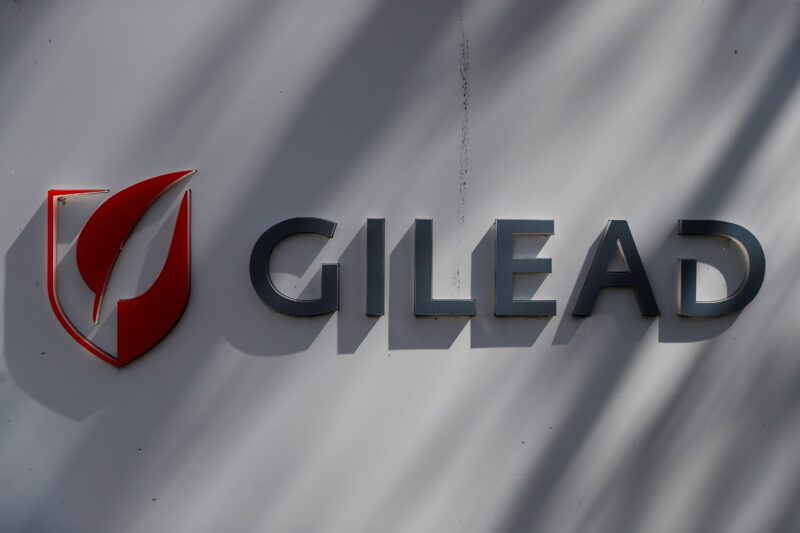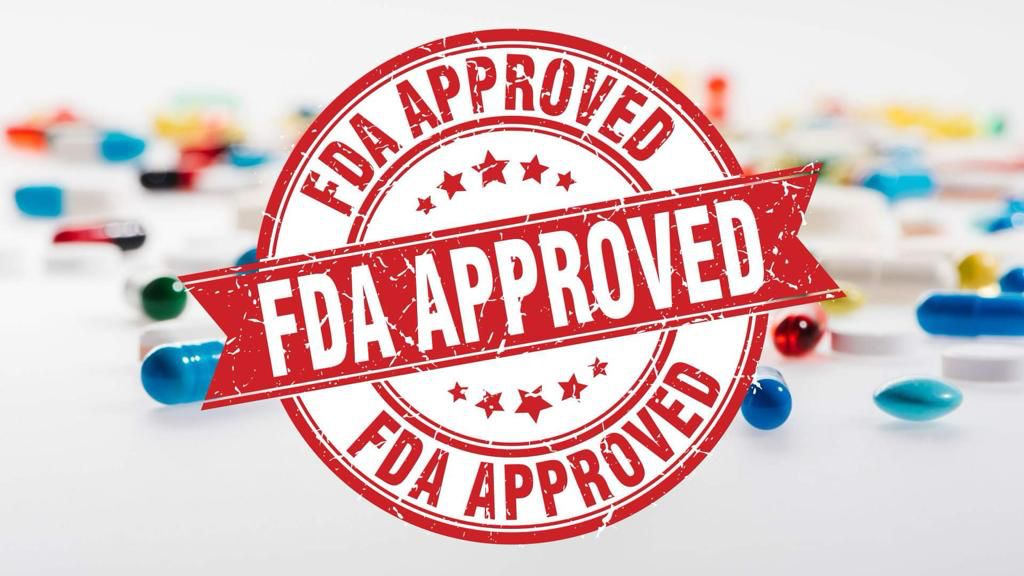U.S. FDA Grants Breakthrough Therapy Designation to Trodelvy (sacituzumab govitecan-hziy) for Second-Line Treatment of Extensive-Stage Small Cell Lung Cancer
On December 17th, Gilead Sciences announced that the U.S. Food and Drug Administration (FDA) has granted Breakthrough Therapy Designation to Trodelvy (sacituzumab govitecan-hziy) for treating adult patients with extensive-stage small cell lung cancer (ES-SCLC) whose disease has progressed after platinum-based chemotherapy.
This Breakthrough Therapy Designation follows positive results from the global Phase 2 TROPiCS-03 study’s ES-SCLC cohort, which demonstrated promising outcomes with Trodelvy as a second-line treatment for ES-SCLC.
As recently presented at the IASLC 2024 World Conference on Lung Cancer, Trodelvy showed encouraging antitumor activity in both platinum-resistant (PR) and platinum-sensitive (PS) disease, with a safety profile consistent with prior Trodelvy studies. These findings support continued investigation of Trodelvy in ES-SCLC, with Gilead planning to initiate a Phase 3 clinical trial in this population.
Lung cancer is the second most commonly diagnosed cancer in the U.S. and the leading cause of cancer-related deaths. Small cell lung cancer (SCLC) accounts for about 15% of lung cancer cases.
Nearly 70% of SCLC cases are diagnosed at the extensive stage, when the cancer has spread to both lungs or other organs. For patients with ES-SCLC whose disease does not respond to first-line treatments (platinum-based chemotherapy or immunotherapy), the prognosis is often poor, and treatment options are limited. There is a pressing need for new therapies to improve survival and slow disease progression.
Breakthrough Therapy Designation is granted to expedite the development and review of treatments for serious conditions that have shown potential to significantly improve clinical outcomes compared to existing therapies. This is the second Breakthrough Therapy Designation for Trodelvy.
About Trodelvy
Trodelvy (sacituzumab govitecan-hziy) is a first-of-its-kind Trop-2-directed antibody-drug conjugate (ADC). Trop-2 is a cell surface antigen that is highly expressed in many tumor types, including over 90% of breast and lung cancers.
Trodelvy uses a proprietary hydrolyzable linker to deliver the topoisomerase I inhibitor SN-38 directly to Trop-2-expressing cells, with a bystander effect that affects the tumor microenvironment as well.
Trodelvy is currently approved in more than 50 countries for the second-line or later treatment of metastatic triple-negative breast cancer (TNBC) and in over 40 countries for certain patients with pre-treated HR+/HER2- metastatic breast cancer.
It is also being explored for use in other breast cancer populations and across various tumor types where Trop-2 is highly expressed, including small cell lung cancer (SCLC) and first-line metastatic non-small cell lung cancer (NSCLC). Clinical studies for Trodelvy in head and neck cancer and gynecological cancers are also ongoing.
U.S. Indications for Trodelvy
In the U.S., Trodelvy is approved for treating adult patients with:
– Unresectable locally advanced or metastatic triple-negative breast cancer (mTNBC) who have received two or more prior systemic therapies, at least one of which was for metastatic disease.
– Unresectable locally advanced or metastatic hormone receptor (HR)-positive, HER2-negative (IHC 0, IHC 1+ or IHC 2+/ISH-) breast cancer, who have received endocrine therapy and at least two additional systemic therapies in the metastatic setting.
Important Safety Information for Trodelvy
Boxed Warning: Neutropenia and Diarrhea
Severe neutropenia can occur. Trodelvy should be withheld for absolute neutrophil count below 1500/mm³ or neutropenic fever. Blood cell counts should be monitored periodically during treatment. Consider granulocyte colony-stimulating factor (G-CSF) for secondary prophylaxis. Promptly administer anti-infective treatment for febrile neutropenia.
Severe diarrhea can occur. Patients should be monitored, and appropriate fluids and electrolytes should be administered as needed. At the onset of diarrhea, evaluate for infectious causes and, if negative, initiate loperamide. If severe diarrhea occurs, Trodelvy should be withheld until it resolves to Grade 1 or below, with dose reductions in subsequent cycles.
Contraindications
Severe hypersensitivity reactions to Trodelvy.
Warnings and Precautions
– Neutropenia: Life-threatening neutropenia may require dose modifications. It occurred in 64% of patients in clinical trials, with 49% experiencing Grade 3-4 neutropenia. Febrile neutropenia occurred in 6%.
– Diarrhea: Occurred in 64% of patients, with Grade 3-4 diarrhea in 11%. In rare cases, severe diarrhea led to complications such as dehydration and acute kidney injury.
– Hypersensitivity and Infusion-Related Reactions: Serious hypersensitivity reactions, including anaphylaxis, can occur, with signs including cardiac arrest, hypotension, and wheezing. Hypersensitivity reactions within 24 hours of dosing occurred in 35% of patients.
– Nausea and Vomiting: Nausea (64%) and vomiting (35%) are common side effects. Grade 3-4 nausea occurred in 3% of patients, and Grade 3-4 vomiting in 2%. Premedication with antiemetics is recommended.
– Increased Risk of Adverse Reactions in Patients with Reduced UGT1A1 Activity: Patients with the UGT1A1 28 allele may be at higher risk for severe neutropenia and other adverse reactions. Close monitoring is advised.
– Embryo-Fetal Toxicity: Trodelvy can cause teratogenicity and embryo-fetal death. Women who are pregnant or planning to become pregnant should not use Trodelvy, and effective contraception is recommended for women of reproductive potential.
Adverse Reactions
In clinical trials, the most common adverse reactions (≥ 25%) included:
– decreased leukocyte count (84%), neutrophil count (75%), hemoglobin (69%),
– diarrhea (64%),
– nausea (64%),
– fatigue (51%),
– alopecia (45%),
– constipation (37%), and others.
Serious adverse reactions (≥1%) included:
– Neutropenia (7%),
– Diarrhea (4%),
– Pneumonia (3%).
The most frequent Grade 3-4 lab abnormalities were reduced neutrophils, leukocytes, and lymphocytes.
Drug Interactions:
– UGT1A1 Inhibitors: Co-administration with UGT1A1 inhibitors may increase adverse reactions due to higher SN-38 exposure. Avoid concurrent use.
– UGT1A1 Inducers: Co-administration with UGT1A1 enzyme inducers may reduce SN-38 exposure. Avoid concurrent use.
Please refer to the full Prescribing Information for detailed safety and usage information, including Boxed Warnings.
About Gilead Sciences

Gilead Sciences is a global biopharmaceutical company that has pioneered medical breakthroughs for more than 30 years, striving to improve global health. The company focuses on developing innovative treatments for life-threatening diseases such as HIV, viral hepatitis, cancer, and inflammation. Headquartered in Foster City, California, Gilead operates in over 35 countries worldwide.


